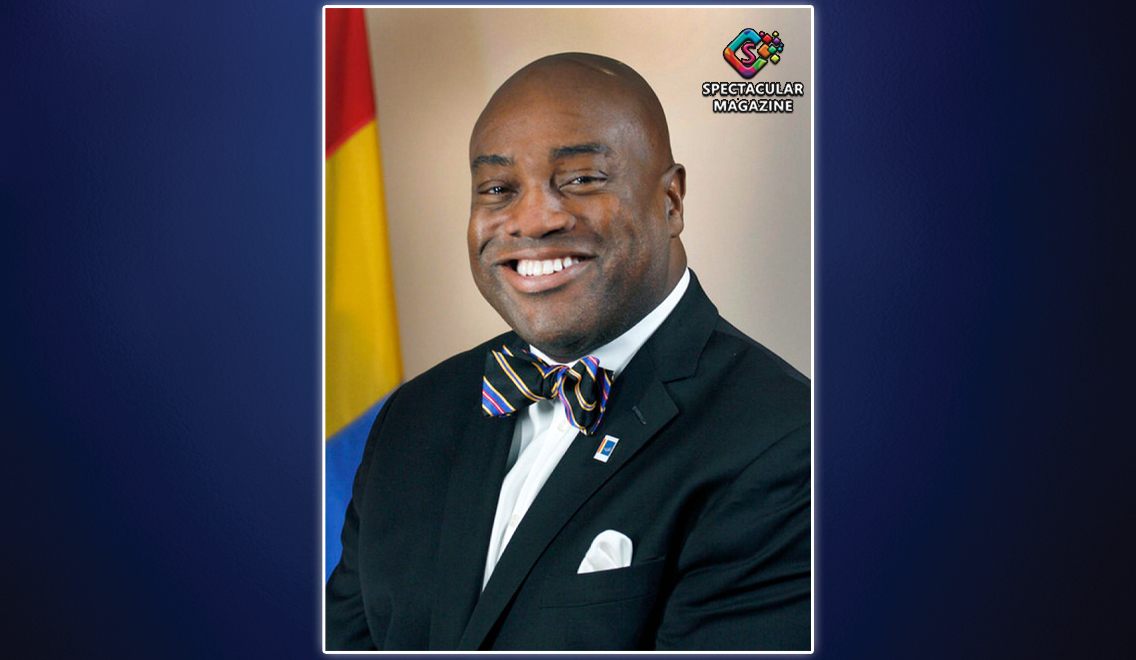Op-Ed: “The Best Way To Defund The Police Is To Not Defund The Police. (Yet)”
Op-Ed Letter To The Editor:
Submitted by: Mark-Anthony Middleton, Durham City Council, Ward 2
When I decided to buy a house, I didn’t stop paying the rent on my apartment. In fact, I was told that it would be absolutely critical to my plans to demonstrate my ability to handle current bills before I was allowed to take on a mortgage. Until I had somewhere else to live, I was responsible for maintaining the place where I kept all my stuff. The Durham Police Department is where we as a city have “lived” and stored our stuff. It has been our default response to a myriad of situations. There is, however, a path towards moving to a new place.
The defunding argument rests on the premise that more police do not make us safer while providing more community resources does. Accordingly, the demand is for the shrinking of policing budgets and the redirection of those funds to community-based safety and wellness initiatives. One of the challenges for policymakers, and for police as well, is the amount of stuff that resides with the police above and beyond violent crime. During my time in office, I have personally witnessed police officers respond to mental health crises, counsel feuding partners, establish and maintain a perimeter at a deadly gas explosion so firefighters could save lives and property, take accident reports for insurance companies, render aid at accident scenes, search for missing children and seniors when alerts are issued, and escort funeral parties to cemeteries. So as a decision-maker when I hear “defund the police” my question is with a scalpel or a broadsword?
This current debate has generated so much heat that I believe we have overlooked a glaring beam of light that could help ground us all. Durham has actually already taken the first steps towards defunding the police and almost immediately had to retreat. When the Durham City Council in a 2019 split vote denied a request to hire 18 additional police officers to keep up with our population growth, limit overtime, and improve employee health and wellbeing it was touted as a victory for the defunding movement. A mayoral compromise proposal for 9 rather than 18 officers was also defeated. Then several months later EVERY SINGLE COUNCIL MEMBER (including self-identified defunding advocates) that voted to deny the additional officers voted to ADD SIX ADDITIONAL POLICE OFFICERS for – wait for it – violent crime associated with gang activity in our city and to lessen overtime expenditures. What happened? Does anyone really believe that we didn’t know that we had a gang/gunfire issue going on in Durham when the first vote was taken? What new information did we receive’? What happened is we tried to move out of our apartment before actually closing on our new house. We had no place to go so we defaulted to our old address. I am calling on my council colleagues and the Durham municipal family to join together and fix this. Let’s once and for all make the sacrifices necessary to build up the capacity and structures so we won’t have false starts. As is the case with solar energy where the savings will be realized after the initial investment in panels and equipment; Durham must finally be prepared to make a significant and paradigm-shifting investment in the structures that will allow us to be weaned from a large policing budget.
What I’m Proposing:
Durham should make some revolutionary choices to fund community initiatives FIRST and then through their empirically observable efficacy begin to draw funds from policing. My belief is that if the initiatives have the expected impacts there will be an almost naturally occurring defunding effect as the mission of the police department is fine-tuned and right-sized.
- The City of Durham should immediately resolve to establish a budgetary culture and goal of spending the equivalent of ten percent (10%) of the previous fiscal year’s police budget on initiatives and reforms that are deemed to make police contact less likely. These determinations should be made in coordination with a fully funded and widely representative Community Wellness Task Force, professional municipal staff that are conversant on national best practices, and the will of the people of Durham as reflected in their elected representation. As the initiatives achieve measurable outcomes it should be the goal of the city to sustain the ongoing funding of the initiatives by a demonstrable reduction in, and transfer from the police budget.
- The City of Durham should immediately begin researching, funding, and deploying unarmed emergency mental health response teams to situations where an armed law enforcement response is unhelpful and potentially deadly. The appropriateness of the deployment of these teams can be determined by trained emergency communication call takers through information gleaned from residents during 911 calls. Responding armed police officers should also be trained to identify situations as a mental health crisis and to deescalate, establish a safe perimeter, and call for the assistance of one of the emergency mental health teams.
- The City of Durham should commit to researching and funding a 2.5 Million Dollar experimental targeted Universal Basic Income program for our most vulnerable residents who are most often the victims of over-policing and police brutality. This will powerfully demonstrate and concretize our commitment to truly dealing with the root causes of crime in our city. A municipal test of the concept of the UBI concept will also greatly buttress Durham’s leadership in the national call for reparations.
- The City of Durham should prioritize and fast track its Shared Economic Prosperity Plan and vigorously encourage the city’s corporate and educational citizens to provide material and intellectual support to our efforts.
Durham City Council, Ward 2

